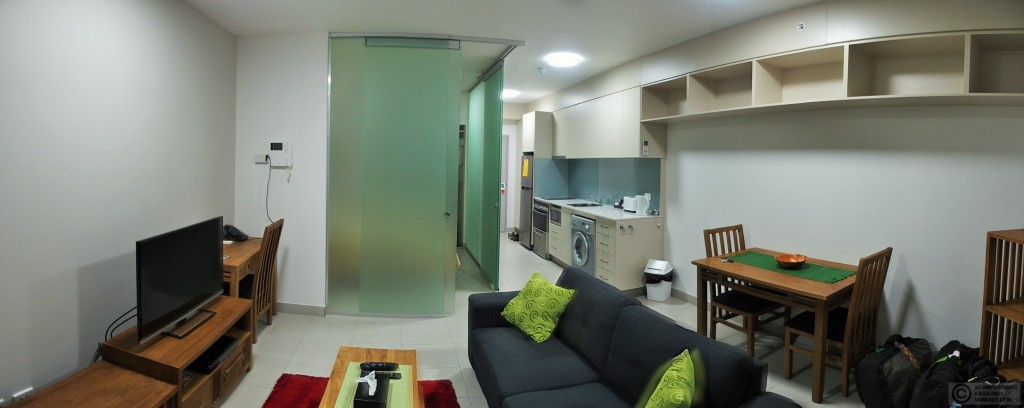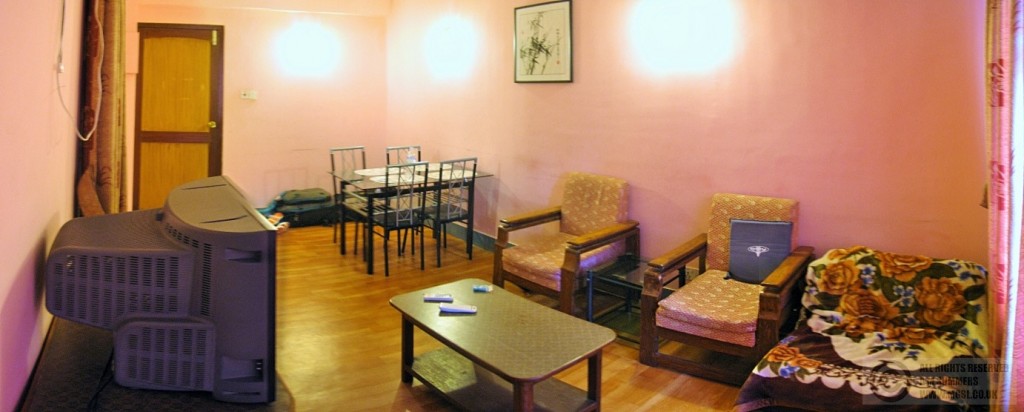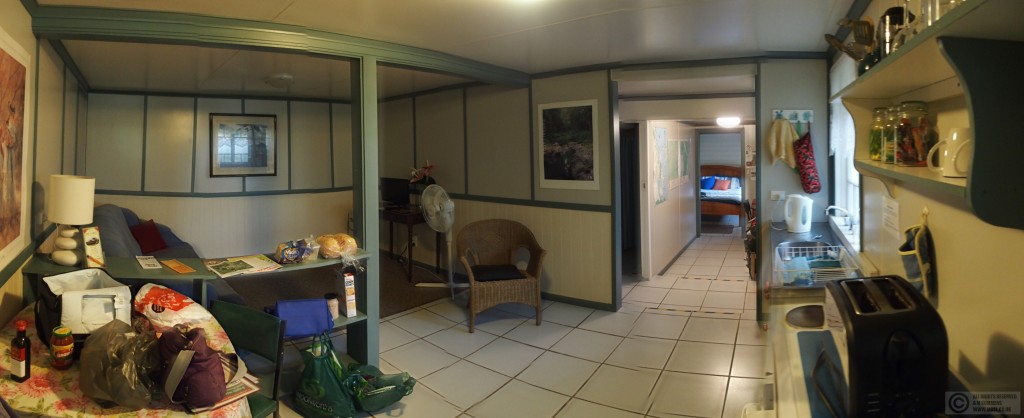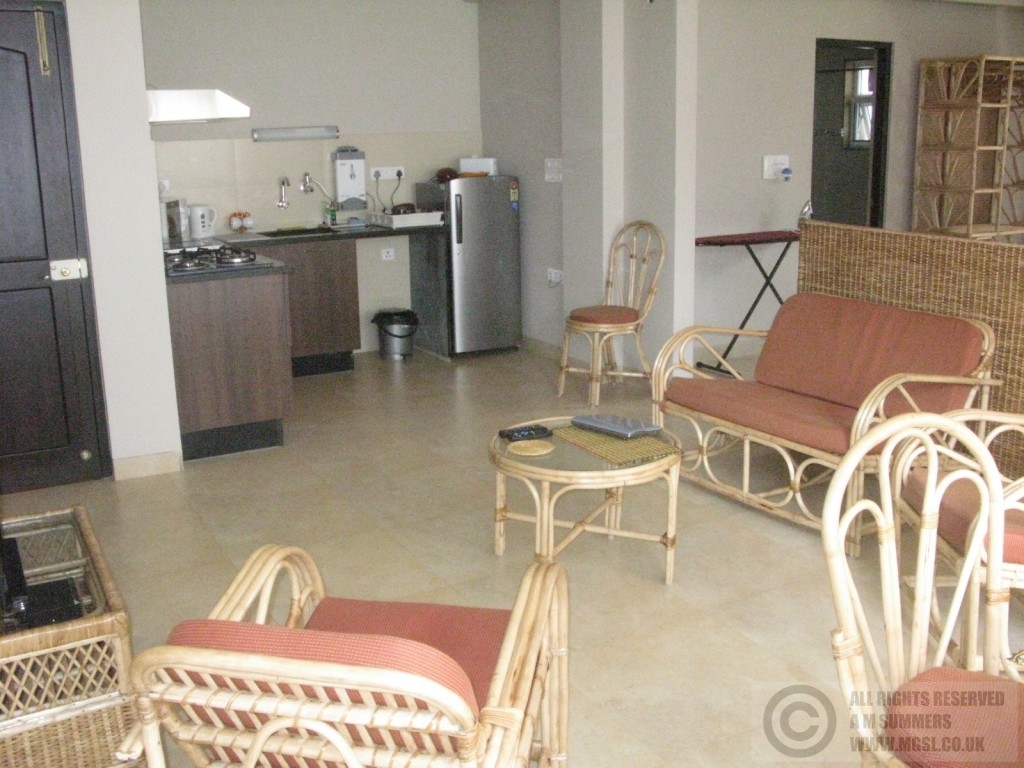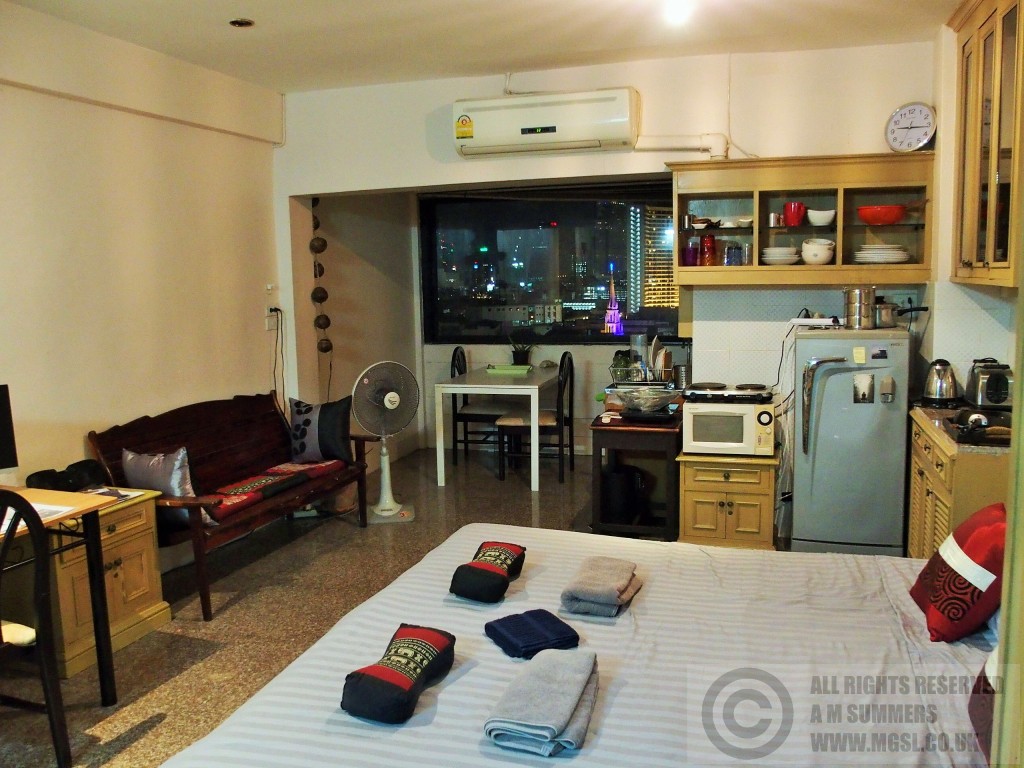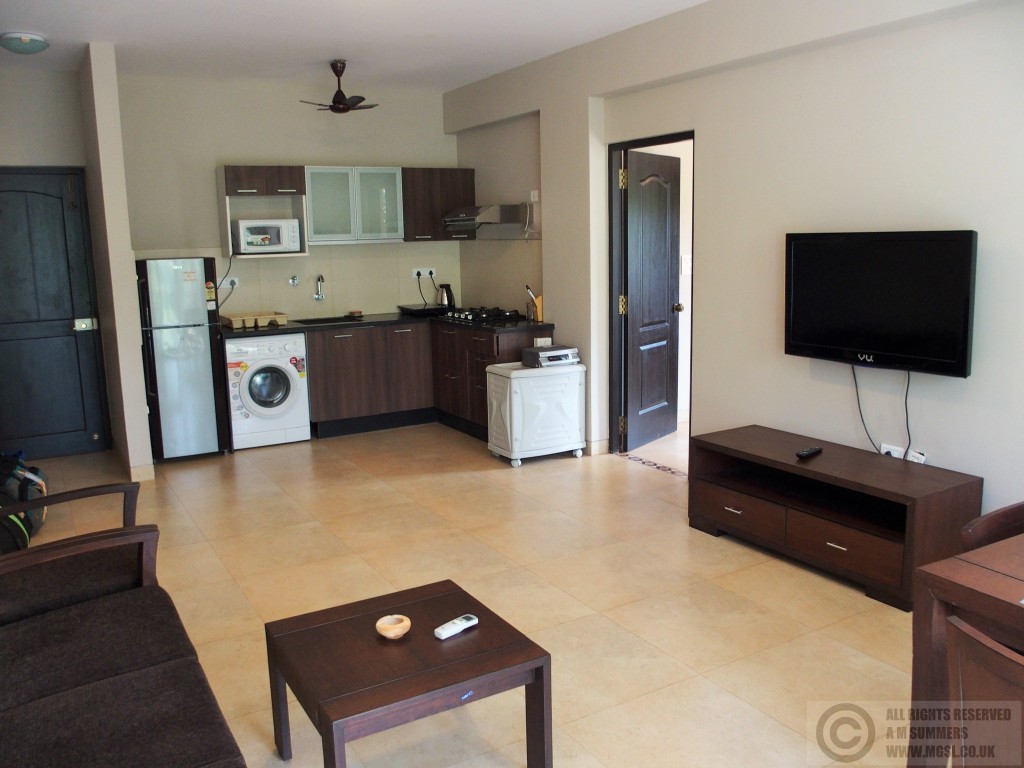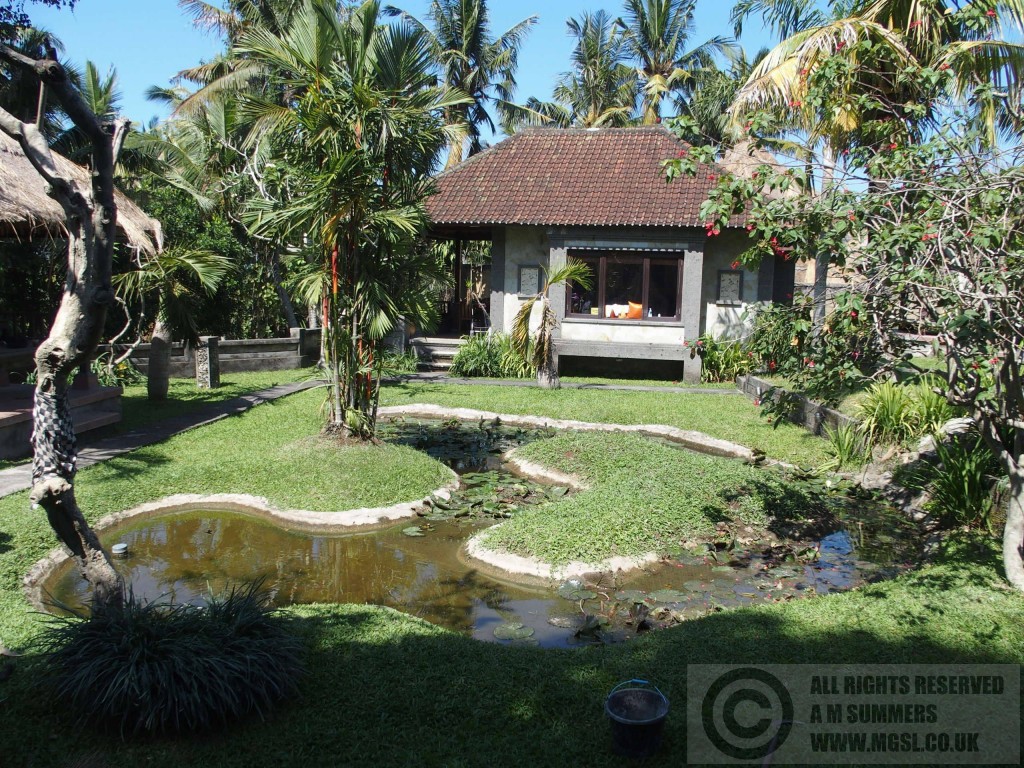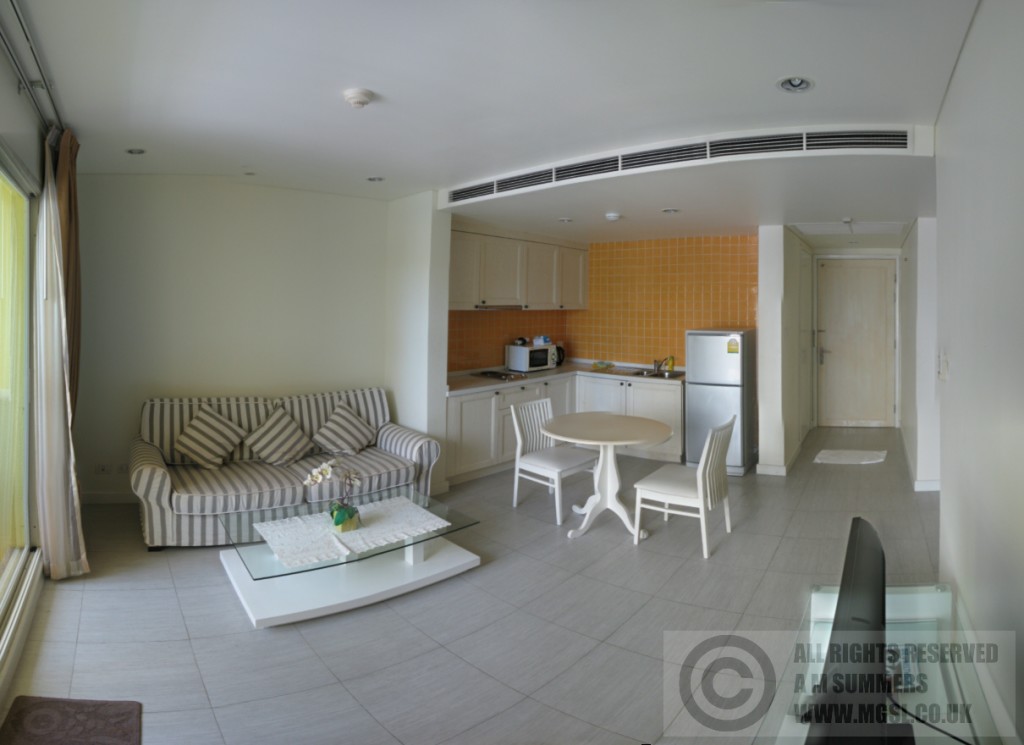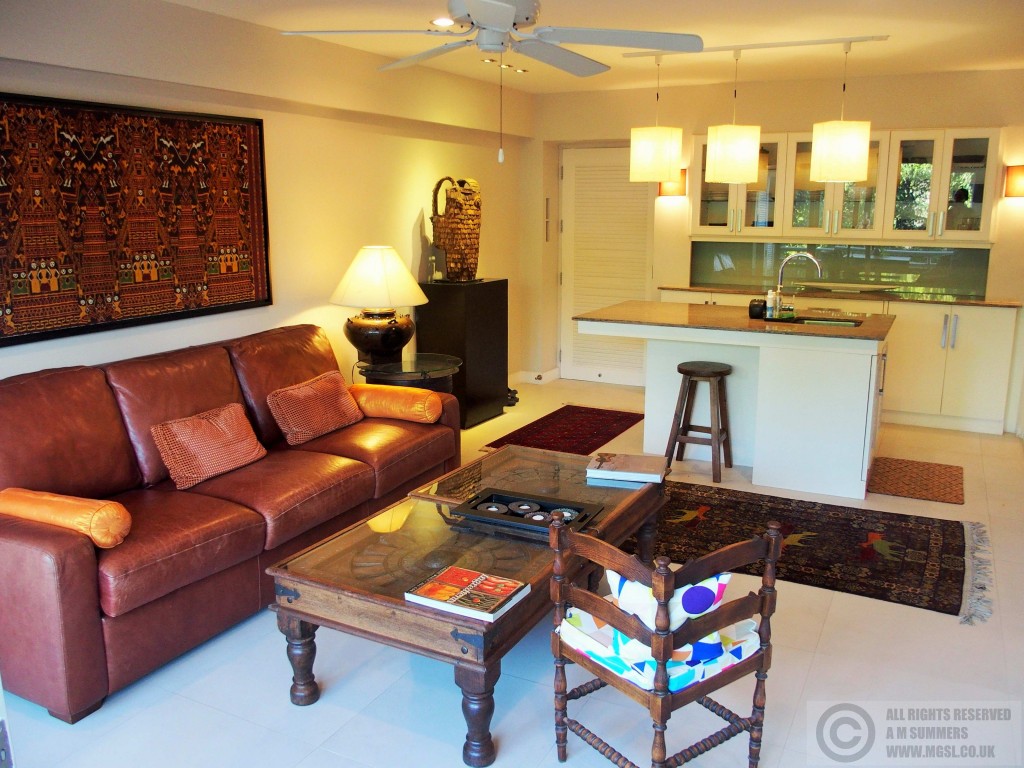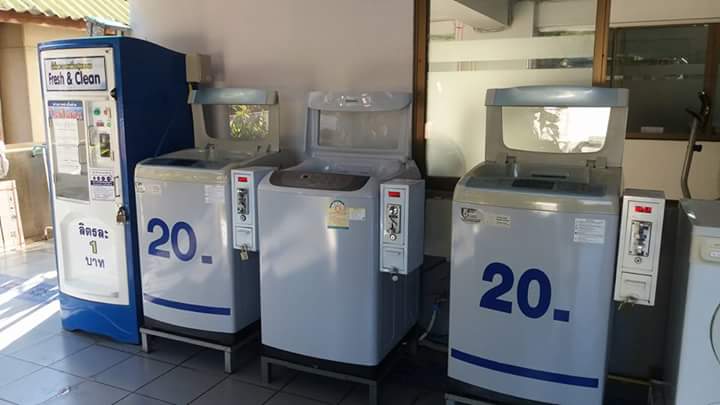Renting holiday apartments and cottages in Asia
When you’re travelling long term, hotels, guesthouses and restaurants pall after a while. I may not be the world’s greatest culinary enthusiast, but I do like to cook sometimes. I also like to eat breakfast before getting dressed. And I like to have the option of not going out in the evening. So if I’m staying somewhere for more than a couple of weeks, I want a kitchen. Here’s what I’ve learned from our experiences of renting apartments, cottages etc short term in Asia (and elsewhere).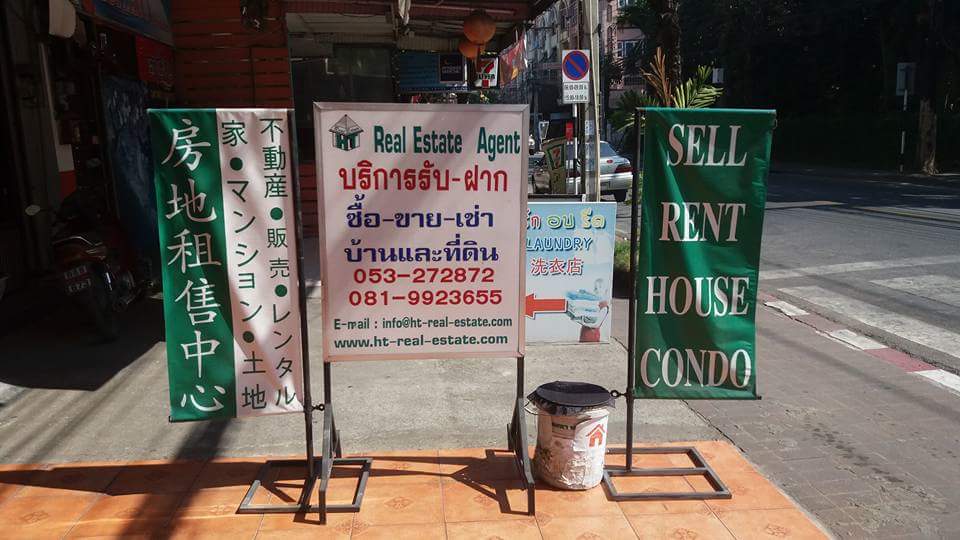
Short term rented accommodation comes in 3 guises – serviced apartments, holiday lets and leases. Whichever route you go, start with a list of essentials and desirables, but be realistic. Kitchens in Asia don’t normally have many of the things westerners take for granted, like ovens, grills, and piped hot water. In Thailand, there may not even be a hob/stove – because street food is so cheap, many Thais simply don’t cook. Don’t assume anything is present – if it’s not specifically listed, ask. And if it is listed, double check, especially if you are booking somewhere without seeing it.
Personally I would be very wary of locking myself into any kind of rental for more than a couple of weeks without checking the place first. There are just too many things that could be wrong with the place that don’t show in photographs – beds that are literally like concrete or far too soft, uncomfortable seating, showers that only dribble or never get hot, insect infestations, noise from nightclubs/mosques/roosters… Other people’s feedback is helpful, but there’s no substitute for personal inspection. However, delaying until you arrive can mean the best places are already booked, so it’s a gamble either way.
Serviced Apartments
Serviced apartments (or cabins etc) are the easiest, most expensive and least work. They are really no different in concept from a hotel room – just bigger (hopefully) and with kitchen facilities of some kind. In tourist resorts you might find them in an a condotel or aparthotel, a large block with a reception desk just like a hotel. Normally staff will come in to clean periodically. You can find them through the big hotel booking websites like Booking.com and Agoda and, if you can bear the annoying pop-ups, you can often find reviews on Tripadvisor.
However the term ‘condo’ always puts me on alert, because often it means that the kitchen facilities are laughable. The difference between a well equipped hotel room (ie with a kettle and a fridge) and a condo might just be a microwave. With luck there’ll be crockery and cutlery too, but don’t count on it.
An aparthotel can be fabulous. Our first few days in Darwin was in the Zen Quarter suites – a smart, well equipped place that even had a dishwasher and a washer-dryer. I could have lived there indefinitely, if I had the money (although it was no more expensive than a similar standard hotel room would be). Unfortunately you’re extremely unlikely to find serviced apartments of that standard in Asia.
At the other end of the scale, our serviced apartment at the Tayoma in Kathmandu was grubby and lacked even basic equipment. I had to cook rice in an old ice cream container in the microwave, since there was no strainer and no bowls – not even a frying pan until we scrounged one from another room. I became quite adept at lifting fried eggs out of the pan with a teaspoon. A ‘serviced apartment’ that we had in Candolim in Goa just had cupboards, a fridge and a sink – not even a kettle, never mind a hob or a microwave. Luckily we were only there one night.
Aparthotels are not very common in space-starved Japan, but we did strike lucky in Tokyo with the J Residence and the Gojyo Ivy in Kyoto – both very (very!) compact and far from smart, but decently equipped with hob, microwave and fridge, and fine for a week or two. Both were absolute bargains when you consider the price of hotel rooms in those places, and we booked them months in advance.
Not all serviced apartments are in blocks – we had an apartment in a family place, The Gables, in Yunguburra in Australia that just had one apartment and one conventional room. It’s worth checking the Booking.com and Agoda etc listings very carefully, because this one was just listed under ‘bed & breakfast’ not ‘apartment’. At least Booking.com enables you to search specifically for a kitchen as an amenity.
In Chiang Mai we visited several serviced apartment buildings that don’t advertise via booking websites, don’t have their own website, and don’t even take phone bookings. They just rely on walk-in customers. The ones we looked at were cheap but gloomy, or really just hotel rooms with no kitchen facilities.
This category would also include the cabins that can be found in many caravan and camping sites in Australia – and the ones we had in Lone Pine and Mission Beach were great. Unfortunately camping and caravanning are alien concepts in Asia.
The main benefits of a serviced apartment are:-
- you can stay for very short periods, usually as little as a single night
- there are rarely extra charges tacked on
- the risk is no different from booking a hotel – you just need to be aware of the cancellation policy
- there is someone on hand to deal with maintenance issues
- bedding, towels, soap, loo rolls etc are provided
- someone else launders the bedding and does the cleaning
But if you want to cook, check the facilities very, very carefully.
Holiday lets
These involve renting directly from the owners, or subletting from long-term tenants, but without an actual lease – although there may be some kind of contract to sign, it won’t have the legal force of a lease.
There are listings websites that can help you find a place, like Owners Direct and Holiday Lettings, but your contract is direct with the landlord and this kind of website will not be much help if there’s a problem. I would be extremely wary of handing over a large sum to someone online who may not even own the property in the photos – there are too many documented cases of owners’ accounts being hacked (although some sites offer some limited protection in this kind of situation). We found one of our Goa apartments through Owners Direct, but we were already in Goa so were able to meet the landlord and look at the place before we committed.
Websites like Airbnb and Roomerama operate in a different way – you pay your money to the website and the host only gets their money after you have moved in, so it’s much less risky. The feedback is also much more reliable, as the host can’t just opt to remove poor reviews.
Of course, this security comes at a price – the websites take a fee (proportional to the cost of the booking) which is not refundable even if both parties are happy to cancel. Other cancellation terms are determined by the host, and you need to check them carefully before you book.
The original idea of Airbnb was for individuals to rent out their spare rooms, ie the guest shares accommodation with the host. There are still many adverts of this kind, so make sure that you know what you’re getting. I’ve seen places in Hong Kong listed as ‘entire place’ when clearly they aren’t, perhaps due to hosts not understanding what that’s supposed to mean. We had a great Airbnb place in Brisbane with a friendly and interesting host, so sharing facilities with a host isn’t necessarily a bad thing, but only if that’s what you’re expecting!
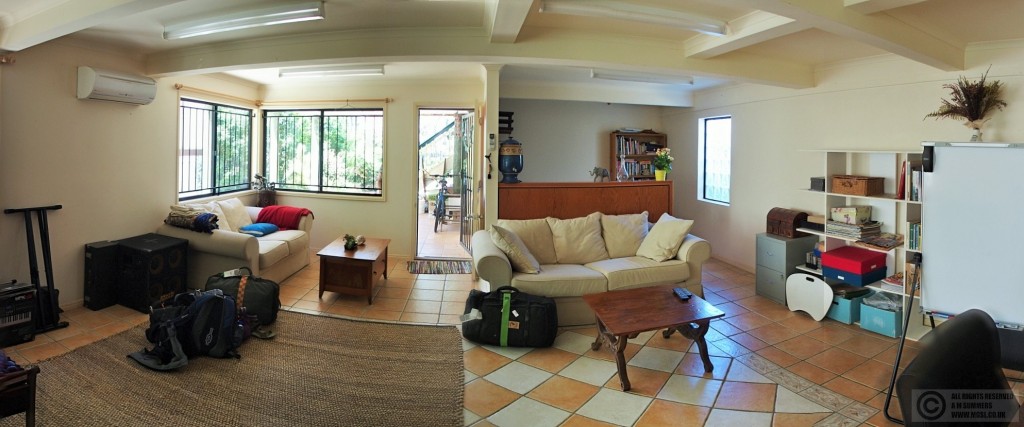
In Brisbane we shared our host’s kitchen but had our own living room, bathroom and bedroom on a separate floor
Inevitably Airbnb is now swarming with guesthouses just using it as another advertising method, so it’s becoming ever less user-friendly for finding lets. But it has resulted in more availability of apartments to rent. Our Airbnb host in Bangkok was a Spanish guy who rented his place long term and sublet when he was working in Spain – without Airbnb I doubt it would have been on the market.
One possible issue with holiday lets in apartment complexes is whether the landlord is actually supposed to be subletting. We once rented an apartment in Goa from a British couple who themselves were renting – they had taken two apartments for the season and were staying in one of them. This obviously annoyed their neighbours, mostly wealthy Indians who owned their units. The person in the apartment above us kept leaving the taps running for hours to drain the tank so that we had no water! Check feedback online for hints of possible problems.
The internet is not your only option for finding places. In Asia it’s common for apartment blocks to have a management office, and these can be a useful source of information if they speak English. Either they can put you in touch with owners of unoccupied units, or they may actually manage short lets on their behalf. We booked our other apartment in Chapora, Goa direct with the building manager, having taken his email on a previous visit.
Generally speaking, holiday lets:-
- Are cheaper than comparable serviced apartments
- May be available for as little as a single night, but a minimum stay of 3 nights is more common (or longer at Christmas and New Year)
- Will come with bedding, towels etc
- May or may not have cleaning and/or bedding laundry services provided
- Have wildly variable cancellation conditions
- Sometimes require a security deposit, but it’s usually modest
Unfortunately, the landlords of many holiday lets seem to assume that guests won’t want to cook, and equip their kitchens accordingly (this baffles me – why rent an apartment if you’re not going to cook?). So check what’s provided. If you’re staying more than a month, it’s worth buying a few bits and pieces to make life more convenient. Or even take a few things with you if you know in advance you’ll be renting – a decent knife, small grater, potato peeler and a couple of tea towels perhaps, as these are usually lacking.
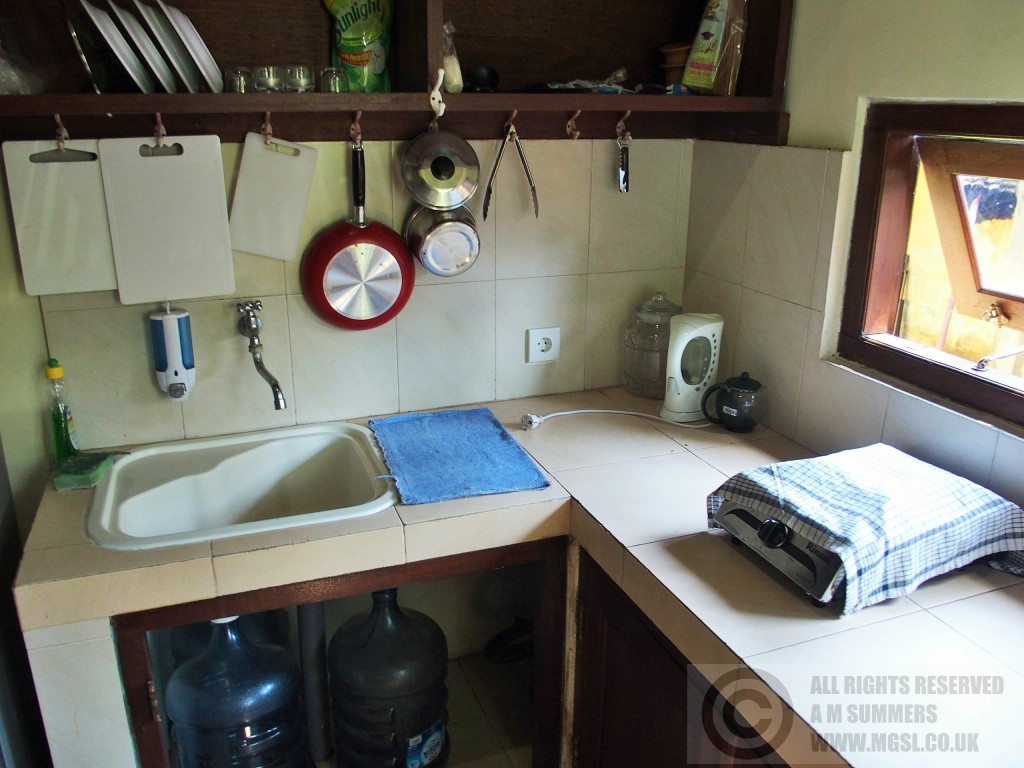
Our minimally equipped kitchen in Ubud, Bali (although it did have 3 chopping boards – we’ve had to buy one sometimes)
If a cleaning service is not provided, check that the necessary cleaning equipment is there – broom, dustpan & brush, mop (and mop bucket if it’s not the squeezy type), and a vacuum cleaner if there’s any carpet.
One other thing to consider is security. A villa or cottage in lush gardens may seem idyllic but that peace and privacy comes with a greatly increased risk of burglary, as we found to our cost in Bali. Of course there’s no guarantee that an apartment won’t be targeted, but security staff, controlled entrances and cameras all lessen the risk considerably. If you do rent a villa, an on-site caretaker with a couple of dogs (such as we once had in Tobago) can be very effective. Ask if there is a safe in the property – it makes a big difference to your chances of an insurance payout if the worst does happen.
However you find a holiday let, check exactly what’s included. I’ve seen spats in Airbnb feedback because a guest hasn’t realised that electricity or internet was charged extra (it’s more common for stays over a month, but I have seen it for short stays). And if you are planning to use a site like Airbnb, sign up well in advance so that all the identity verification procedures can be done – I had difficulty when they wanted to verify my phone number (my UK number didn’t work in Laos), and they rely heavily on you having a presence on other social networks.
A final oddity which certainly applies to Airbnb, and may to other websites. Owners often give lower prices for longer stays, but this can lead to anomalies where it’s actually cheaper to book for 28 days (ie the monthly price) than, say, 22 x the nightly rate. And at the time of writing, the Airbnb app didn’t show monthly rates, so use their website.
Leases
Leases give you the cheapest rates of all, but have a number of drawbacks.
Assuming you don’t speak the local language, you are going to be reliant on an agent or landlord speaking English, and providing a lease in English. This is only going to happen in a place where there is a large expat community. We’ve only leased 2 places, both in Thailand.
Very short leases are not available. We managed to rent our place in Hua Hin for only 2 months, but 3 months is a more usual minimum. When we were looking in Chiang Mai, only about 5% of the properties online were listed as available for 3 months – most landlords want 6 months, or even a year. However it’s always worth asking if a shorter let can be considered – the chances of getting agreement are greatly improved if it’s not peak season and you are actually there ready to move in to an empty place straight away. And, of course, if you offer to pay a higher monthly rate.
A security deposit will be required – in Thailand, this may well be the equivalent of 2 months’ rent. That’s on top of the first month’s rent that you’ll pay when you sign the lease – quite a sizeable sum. You will probably need to move out into a guest house a day or two before you leave town, so that you can get your deposit refunded. Will you actually get it back? Well… If you’re going to be leaving the country once the lease finishes, what’s to stop your landlord from keeping it? Unfortunately Thai landlords have a reputation for not returning deposits, especially to foreign tenants.
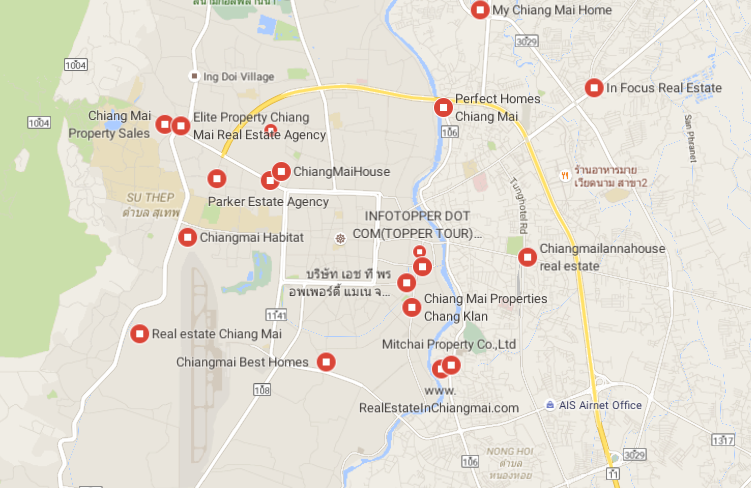
In a city like Chiang Mai there are plenty of letting agents – most will have staff who speak English
Your chances of getting your deposit back are probably better if you deal through a reputable agent, rather than direct with a landlord – the agency has it’s own reputation to consider and can put pressure on the landlord. We used Acute Realty in Hua Hin and Perfect Homes in Chiang Mai. A good agency will prepare an inventory of the apartment’s contents and condition when you move in, ideally with pictures – check it carefully and ensure any defects are noted. We got our deposit back in Hua Hin with no problems, and I’m optimistic that we will in Chiang Mai (it maybe helps that our landlady is an absolutely lovely American retiree). It probably also helps that we are careful non-smokers who won’t be having parties, and that I understand what ‘clean’ actually looks like in the context of ending a tenancy – as a landlord in the UK I’ve never had a tenant who has, so that might be why some people don’t get all their deposit back.
As a tenant there is no reason not to use a letting agent in Thailand – it costs you nothing, and they will usually pick you up from your guest house and drive you to round to look at places. Our agents even took us to the flat with our luggage when we moved in. Using an agent also lessens the risk of a bogus landlord taking your money for a place he doesn’t even own. Although agents list property on their websites it’s best to email them with your requirements and budget – they will know which landlords might be flexible on the rent. In Hua Hin we got an apartment that was being advertised for 25% more than we were offering.
With a leased property you will have to pay extra for water and electricity, and possibly for internet and cable TV. Electricity in particular can be quite expensive, especially if you’re paying an inflated rate – if you’re lucky you’ll pay the rate the electricity company charges, but the management of some apartment buildings in Thailand charge up to twice that. Check the rates before you sign up, and if you have cable TV turn it on and see what channels are included. It might be just 200 channels in Thai.
Even if you aren’t paying a premium, having the A/C on can add a substantial amount to your monthly bill – I’ve seen one estimate for Thailand as 10 baht (US$0.35) per A/C unit per hour. So think about this when looking for an apartment, as there are things that can impact significantly on your A/C use.
- Which way do the windows face? How much sun does the place get? In the UK we think of a sunny room as a good thing, but in the tropics the reverse is true. We were shown a sunny place in Chiang Mai that was like an oven. Our Chiang Mai apartment faces north, and even with daytime temperatures over 30°C we’ve never felt the slightest need to switch it on.
- Are there mosquito screens on the windows/patio doors? If the answer is ‘no’, you’re not going to be wanting your windows open, especially in the evenings when you have the lights on. And consider whether road noise or security concerns will force you to close your windows overnight.
- Are there any fans? Ceiling fans are best but failing these, floor standing fans – one in each room. The power needed to run a fan is a fraction of that needed for A/C. In Hua Hin we bought a desk fan for about 250 baht – but it saved us much more than that as we managed to sleep without the A/C.
- What is the bedding like? We’ve encountered crazily warm bedding in both hotels and apartments. In Hua Hin we had only padded quilts with non-removable covers, with night time temperatures well above 20°C – even with the fan on we had to sleep under our sarongs for 2 months.
Be aware that even if an apartment is ‘furnished’ it may not be equipped with bedding, towels and kitchen equipment. Check the price of buying things like this locally before you commit to a place without them – bed linen in Thailand is astonishingly expensive (2 sets of non-nylon bed linen could cost you more than the monthly rent of a very cheap condo!).
Don’t forget to check whether there will be any mandatory final cleaning or laundry fees – if not, you will be expected to leave the place clean ready for the next tenant and to launder everything before you leave.
Not only will you have to clean the place yourself (or pay for a cleaner), but you will have to supply all the cleaning consumables – washing up liquid, pan scrubbers, laundry detergent, loo rolls, toilet cleaner, rubbish bags etc. So factor the cost of these into your rental budget. Check that the hardware has been provided – it’s OK to have to buy a mop or dustpan yourself, but not a vacuum cleaner!
If there’s no washing machine, check where the nearest laundry facilities are before you sign up, bearing in mind that you’ll have to launder bedding and towels. Many people in Asia don’t have their own washing machines so small laundries are common, and in Thailand there are coin-op washing machines too (but dryers are not so common).
Also check the drinking water situation – you don’t want to be hauling heavy bottles a long way, especially if you don’t have your own transport. Depending on how bad the tap water is you may not even want to cook things like rice and pasta in it – boiling kills bugs but doesn’t remove contaminants like lead from old piping. When it’s hot the two of us get through a 6-litre bottle per day and they cost 48 baht (US$1.50) in the local 7-11. Luckily, as in many Thai apartment blocks, there is a filter machine downstairs that dispenses 7 litres of drinking water for 5 baht (US$0.15). The management office in an apartment building may be able to arrange drinking water delivery.
The considerations around security are similar to those for a holiday let, but it’s very unlikely that there will be a safe.
With a serviced apartment or short holiday let it’s unlikely that you will need to worry about notifying or registering your address – your landlord should do anything necessary. However as foreigners in Thailand we had to go to immigration and complete a form when we leased our apartment in Chiang Mai, even though our landlady reported us too. If we hadn’t we could have been facing a fine when the time comes to apply for our visa extensions. Check the requirements for the country in which you are renting.
Conclusion
All three methods of renting have their benefits and possible pitfalls, and only you can decide which is most suitable for you and your circumstances. Obviously I’ve only been able to comment based on our own experiences – I’d really love to hear about other people’s experiences, especially of short-term leasing accommodation in countries other than Thailand.


